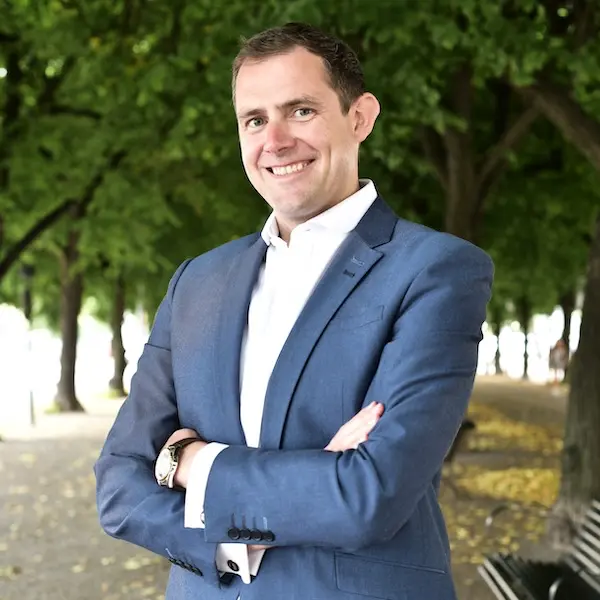
Patrick Hamilton Walsh
Award-Winning Author, Speaker, and Global Talent Expert

Speaker Abigail Marsh, Ph.D., is a Professor at Georgetown University specializing in Psychology, Neuroscience, and Cognitive Science. She directs the Laboratory on Social and Affective Neuroscience, focusing on empathy and its links to altruism, aggression, and psychopathy. Marsh is also an award-winning author and active in various scientific and social organizations.
Want to book Abigail Marsh as a speaker for your event? Please provide the info below and we’ll get in touch within 24h:
Speaker Abigail Marsh, Ph.D., is a Professor at Georgetown University, specializing in Psychology, Interdisciplinary Neuroscience, and Cognitive Science. She directs the Laboratory on Social and Affective Neuroscience, where she researches emotional processes such as empathy and their connections to altruism, aggression, and psychopathy.
Her extensive research is detailed in over 90 publications, including prestigious journals like Proceedings of the National Academy of Sciences, Nature Human Behaviour, American Journal of Psychiatry, and JAMA Psychiatry. Her award-winning book, “The Fear Factor” (2017), also presents her findings. In 2022, she was honored as the “most admired and respected” instructor at Georgetown, where she teaches psychology, neuroscience, and empathic communication.
As a notable woman in STEM, Marsh is a fellow of the Association for Psychological Science and has received several accolades, including the Cozzarelli Prize for scientific excellence from the Proceedings of the National Academy of Sciences, the S&R Kuno Award for Applied Science for the Social Good, and the Richard J. Wyatt Fellowship award from the National Institute of Mental Health (NIMH) for translational research.
She is also an active board member of One Day Sooner and the National Kidney Donation Organization, and co-founder and vice-president of the non-profit mental health organization Psychopathy Is. Marsh earned her BA from Dartmouth College, her Ph.D. from Harvard University, and completed her post-doctoral research at NIMH.
Study after study has proven empathy is a more important skill to develop now than ever. So why are many people bad at it? A pioneering researcher in the field of human social interaction, Georgetown University psychology professor Abigail Marsh, Ph.D., studies the science of altruism and how the brain reacts when we help others. With her team at the Laboratory on Social and Affective Neuroscience, she’s arrived at the inspiring conclusion that, despite popular belief, humans aren’t fundamentally selfish, and helping others is a self-reinforcing process, bringing more joy than simply investing resources in oneself.
Why are some people capable of acting heroically in service of others, even total strangers, while other people are not? According to Georgetown University psychology professor Abigail Marsh, Ph.D., it’s because of the way the human brain reacts to fear. As the director of the Laboratory on Social and Affective Neuroscience, Marsh performs clinical investigations into the biological processes that occur when we feel afraid. By studying people who have performed heroic deeds, she’s learned that heroes aren’t fearless at all – in fact, they feel fear more strongly than the average person. Her moving presentations show audiences techniques derived from hundreds of interviews that decrease selfish behavior, improve self-focus and increase comfort with risk-taking. By unpacking the origins of selfless behavior, Marsh delivers an uplifting reflection on the nature of courage and how anyone has the potential to be a hero.
Natural disasters, global pandemics and social worries – there’s a lot to make people feel afraid these days. The good news, according to Georgetown University psychology professor Abigail Marsh Ph.D., is that anyone can learn to manage their fear, becoming a more courageous and kinder person in the process. Author of the award-winning book “The Fear Factor: How One Emotion Links Altruists, Psychopaths, and Everyone In-Between,” Marsh conducted hundreds of interviews with people who performed great acts of courage to discover they shared humility and honesty as key character traits, indicating how highly they value others. In this presentation, she shares tips, gratitude exercises and main points to consider when facing fearful situations. Her heartening suggestions for deliberately practicing fearful situations give teams a solid foundation of ground rules for proceeding in the face of risk, novelty, or anything that scares them. Ultimately, her strategies to keep fear from spiraling out of control, good habits for expanding the capacity for fearlessness and recommendations for restoring interconnectedness make fear work for any organization, instead of hampering it.
Every company wants to create a safe and innovative culture, but it can feel intimidating to disrupt the status quo. As the foremost expert on the psychology of courage, Georgetown University professor and director of the Laboratory on Social and Affective Neuroscience Abigail Marsh, Ph.D., has found that few people understand their own capacity for fearlessness – and that existing capacity can be raised. Drawing from research described in her award-winning book “The Fear Factor: How One Emotion Links Altruists, Psychopaths, and Everyone In-Between” (2017), Marsh details how altruistic and heroic behavior are connected. She then suggests best practices for identifying opportunities to help others, exercises for increasing comfort with risk-taking and fear-management strategies, helping individuals become better decision-makers and feel more comfortable taking risks. Refreshingly optimistic, Marsh and her techniques for raising an organization’s global courage build a culture of fearless innovation and psychological safety.
| Basic Data Protection Information | |
|---|---|
| Data controller | AURUM SPEAKERS BUREAU S.L. |
| Address | Doctor Ullés 2, 3º 1ª, CP 08224, TERRASSA (Barcelona) |
| Purposes | We will use your data to respond to your requests and deliver our services to you. |
| Marketing | We will only send you marketing correspondence if you have given your prior consent, which you can do by ticking the box for that purpose. |
| Lawful basis | We will only process your data if you have given your prior consent, which you can do by ticking the box for that purpose. |
| Recipients | Generally, only our members of staff who have been duly authorised may access the data that you have provided. |
| Your Rights | You have the right to know what information we hold about you, to rectify it and to erase it, as explained in the additional information available on our website. |
| Additional Information | For more information, please see “PRIVACY POLICY” on our website. |